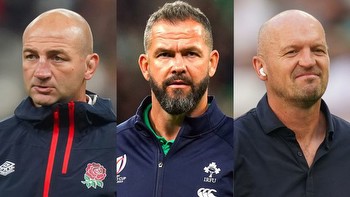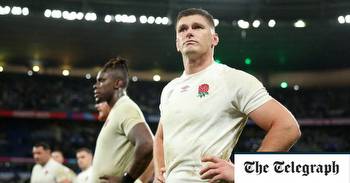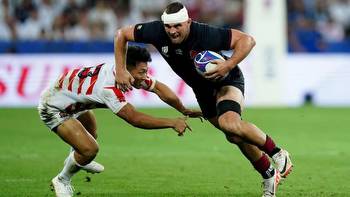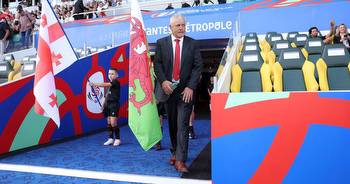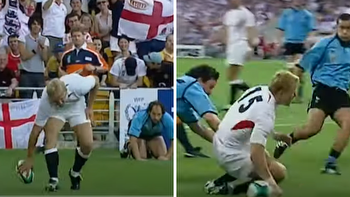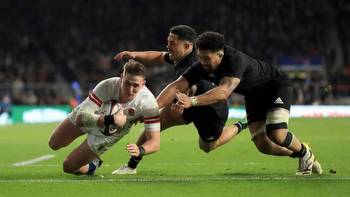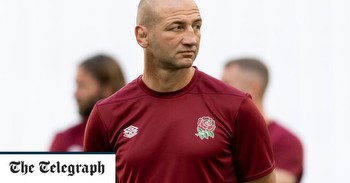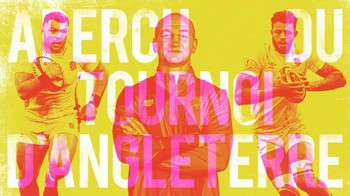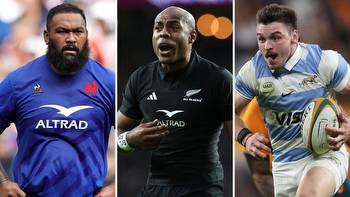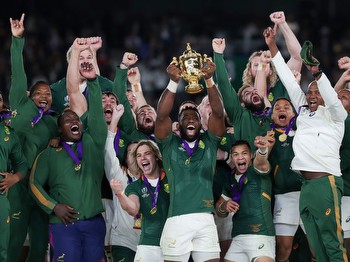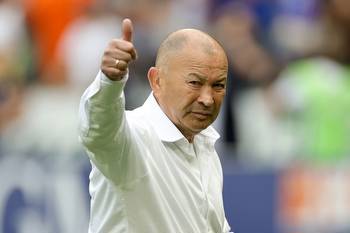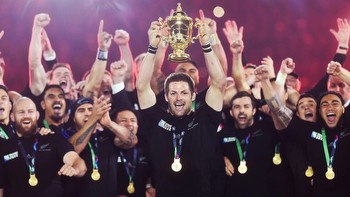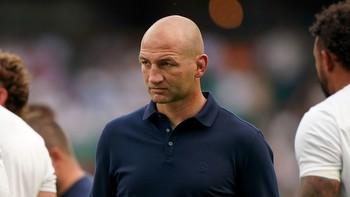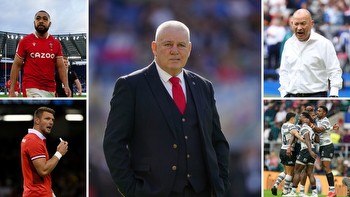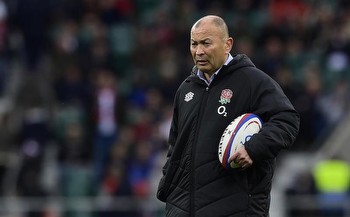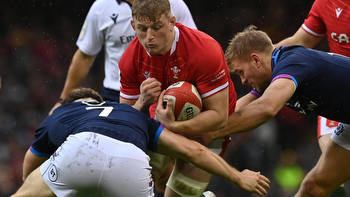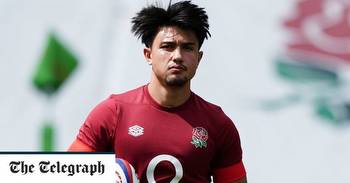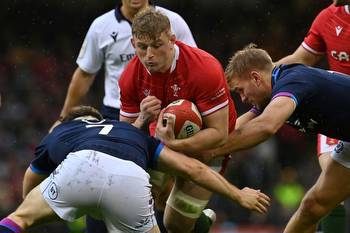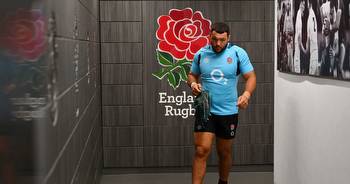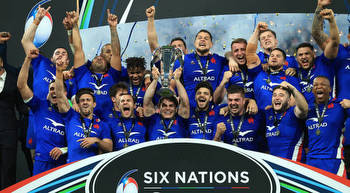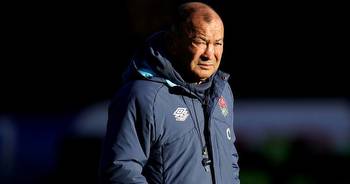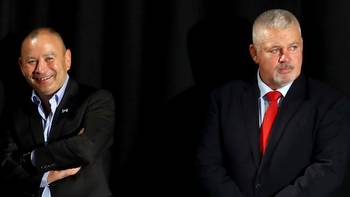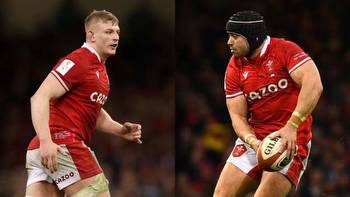England must embrace the spirit of 2007 Rugby World Cup to exceed expectations
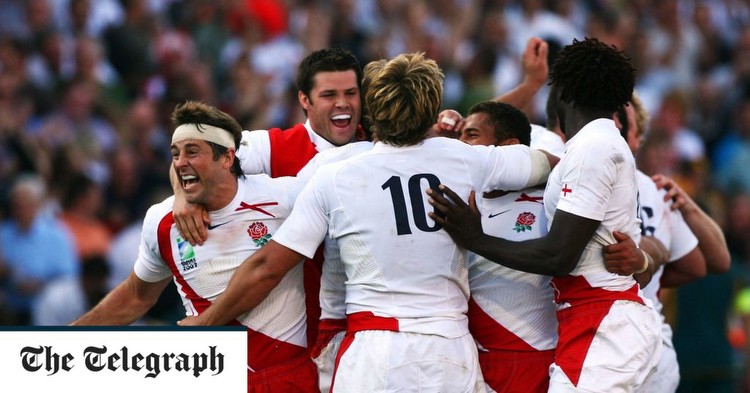
When Steve Borthwick took charge of England in January, he had a decision to make. With just nine games to prepare for the World Cup campaign, should he tear the house down and start all over again?
The man he succeeded, Eddie Jones, sacked at the end of the third year of England’s World Cup cycle, has done just that since his appointment as head coach of Australia, creating controversy by moving on from the Michael Hooper and Quade Cooper era.
Warren Gatland, the third of the triumvirate of head coaches brought in at the 11th hour to salvage World Cup hopes, has opted for a half-way house, bringing through the next generation under Jac Morgan while retaining a core of experienced heads.
The advantage for the strategy employed by Jones and to some extent Gatland, is that it has the cushioning effect against the immediate pressure of results at this World Cup.
Australia and Wales have begun a rebuilding process when the ultimate test will be at the 2027 World Cup in Australia, not over the next two months.
Yet Borthwick, perhaps influenced by his own experience as a member of England’s 2007 World Cup squad, that against remarkable odds, reached the final in Paris despite the humiliation of a 36-0 defeat by eventual champions South Africa in their second match, opted for the third way.
Just as Brian Ashton, the England head coach during that campaign, leant heavily on the survivors of the 2003 World Cup winning squad, so Borthwick decided the best strategy was to squeeze one last campaign from the veterans of the squad that reached the final in Japan four years ago.
In 2007, it was the senior players who stepped up in the wake of the Springbok defeat, with Lawrence Dallaglio, Mike Catt and captain Phil Vickery among those found their voice and challenged Ashton to simplify the game plan and but for a controversial decision by the Television Match Official ruling out a ‘try’ by Mark Cueto in the final, might have returned as champions again.
Even the most diehard England supporter would concede the achievements of the 2007 band of brothers looks beyond the class of 2023, yet there are echoes from history.
Borthwick’s faith in the veterans of 2019 has yet to reap dividends, while events – the suspensions to captain Owen Farrell and Billy Vunipola, and tournament-ending injuries to Jack van Poortvliet, Anthony Watson and Luke Cowan-Dickie, as well as setbacks to Tom Curry, Elliot Daly, Henry Arundell and Kyle Sinckler - have further disrupted preparations.
Just as Ashton found his original game plan queried, the underwhelming performances during the four World Cup warm-up matches have raised questions about the limitations of England’s attacking game as well as alarms at the porous nature of their defence.
Yet talk of any internal revolt appears to be wide of the mark. The first sign of discontent usually surfaces in commitment training, but this is said to be one of the “tightest” playing groups for years.
Borthwick and is coaching team are inexperienced in relative terms to their rivals, and the word is that Richard Smith, England’s in-house KC (he still goes by the nickname ‘QC’) who was first appointed by World Cup winning head coach Sir Clive Woodward 20 years ago, has assumed a ‘chief of staff’ role, while Richard Hill, the team manager, and World Cup winner, is also acting as a key sounding board for Borthwick.
Players also regularly received data to their laptops, while the management hold interactive meetings and one-on-one sessions with every member of the squad. It is understood that Borthwick has also re-iterated to the squad that if it had not been clear before, their input is welcome, just as Ashton found accommodation 16 years earlier following the rout at the Stade de France.
“When you have a coaching staff like we have, you get on board quite quickly with the strategies being put in place,” said Courtney Lawes, England’s captain in Farrell’s absence, before the Fiji game.
“What we have started to do is get the players’ perspective on how to change it to best suit our strengths.”
It could be argued there would be less pressure on Borthwick if he had chosen the rebuilding option, and a major overhaul is expected next year. But like Jones and Gatland, it is understood his position is secure whatever happens at this World Cup.
England’s goal has been to create a ‘no-excuses’ environment over the last two months. The question now is: can the senior players – there are 11 survivors from the 2019 World Cup final in the match-day 23 to face Argentina - find their voice on the pitch as Vickery’s men did?
Ominously, Argentina have been quiet in their preparations this week. Make no mistake, Cheika’s side are a formidable outfit. Like 2007, a defeat for England would not necessarily harm their chances of reaching the knock-out stages, given the lop-sided nature of the World Cup draw.
Victories over Japan, Chile and Samoa would still be enough to set up a quarter-final, most likely against Australia or Wales. But what England need now, to give their supporters as well as themselves some reason to believe, is a win. Everything changes with a win.
The defeat by Fiji was the equivalent low point of the defeat by South Africa 16 years ago. It is time for the players to draw on the spirit of 2007.

